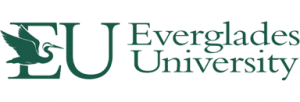Alternative medicine has been playing a large role in the healing industry for centuries, and its popularity is showing no sign of slowing down. The numerous benefits directly linked with alternative or natural medicine have created a wave of interest, especially in the Western world, that seems to continue to grow at a rapid rate.
Alternative medicine encompasses a diverse range of treatments that diverge from conventional medicine, offering unique advantages that conventional treatments often fail to provide. Despite facing criticism and skepticism within the realms of traditional medicine and Western medicine, the holistic approach of alternative treatment methods has garnered significant attention and respect for its ability to align with individuals’ values, beliefs, and philosophical orientations towards health and life, as highlighted by studies reported in the Jama Network.
Alternative medicine is not merely a fallback for those unable to access medical treatment through healthcare professionals. It represents a deliberate choice by many who seek a more congruent healthcare alternative that respects their personal health philosophy. This preference emphasizes the growing interest in and validation of the extraordinary benefits of alternative medicine, as seen through rigorous research.
The juxtaposition between the sterile environment of a conventional hospital equipped with advanced medical tools and the serene ambiance of an acupuncture session—where precision-placed needles aim to alleviate conditions like depression and anxiety—illustrates the profound differences in treatment approaches. However, this contrast does not diminish the efficacy of alternative treatments. In fact, the principles of alternative medicine have been supporting the well-being of countless individuals for centuries, demonstrating that the value of a holistic approach to healthcare extends beyond the boundaries of conventional wisdom.
From acupuncture to herbal remedies, the forms of alternative medicine are as varied as the benefits they offer. Embracing these methods can lead to breakthroughs in personal health and wellness, challenging the conventional norms of the medical field. As we delve deeper into the benefits of alternative medicine, it becomes clear that integrating these practices into our healthcare regimen can provide a complementary path to achieving holistic wellness, supported by both healthcare professionals and centuries of traditional wisdom.
Acupuncture

Acupuncture, a cornerstone of alternative medicine treatments, has gained widespread popularity across the United States, transcending the boundaries of conventional treatments and mainstream medicine. This ancient Chinese technique, characterized by the insertion of needles and sometimes complemented by electric stimulation, is acknowledged by licensed physicians for its effectiveness in addressing conditions often resistant to Western medicine, including female sexual dysfunction.
Endorsed by extensive research, including findings from the National Center for Complementary and Integrative Health, acupuncture has been demonstrated to offer significant benefits for a wide range of health issues. Its efficacy extends to the reduction of various pain conditions, reinforcing its position as a formidable alternative therapy within the forms of healthcare available today.
Acupuncture’s approach to health, grounded in a philosophy that dates back thousands of years, provides relief for an impressive array of conditions, including but not limited to:
- Digestive problems,
- Back and neck pain,
- Anxiety and depression,
- Sleep disorders,
- Infertility,
- Muscle strains, and many more.
These benefits highlight the versatile nature of acupuncture as a method of alternative medicine. Its success in treating such a wide range of health issues is a testament to the holistic philosophy of health that alternative medicine embodies. This holistic approach, emphasizing the treatment of the whole person rather than just symptoms, stands in contrast to the more segmented approach often seen in Western medicine.
Moreover, acupuncture’s capacity to address pain conditions, such as neck pain and muscle strains, with minimal side effects positions it as a compelling option for those seeking relief from chronic discomfort. Its inclusion in the repertoire of treatments recommended by healthcare professionals underscores the growing recognition of alternative therapy’s vital role in complementing conventional treatments.
As we continue to explore and integrate various forms of healthcare, acupuncture remains a shining example of how traditional practices can harmoniously blend with modern medical philosophies, offering a comprehensive, patient-centered approach to health and wellbeing.
Herbal Medicine
Herbal medicine, a fundamental component of complementary and alternative medicine (CAM treatments), harnesses the intrinsic healing properties of plants, roots, berries, and leaves, offering a natural pathway to wellness. This time-honored technique has been a cornerstone of healthcare for thousands of years, reflecting a deep-rooted belief in the body’s natural healing capabilities. Beyond its historical significance, herbal medicine provides a compelling alternative for those seeking relief from a variety of health conditions, including heart problems, skin rashes, chronic fatigue, premenstrual syndrome, obesity, and more.
Globally, herbal medicine is not merely a complementary treatment but a primary form of healthcare for approximately four billion people, representing 80% of the world’s population. This staggering figure underscores the widespread acceptance and reliance on herbal products as a vital component of health and wellness, challenging the conventional care paradigms of mainstream medicine.
Among the popular herbal medicines that have gained recognition for their health benefits and potential to treat various health conditions are:
- Ginkgo Biloba: Known for its potential benefit in enhancing cognitive function and helping treat circulation disorders.
- Echinacea: Often used to boost the immune system and combat colds and flu.
- St. John’s Wort: Frequently employed to help treat depression and anxiety, highlighting the broad range of mental health conditions addressable by herbal supplements.
- Garlic: Utilized for its cardiovascular benefits, including lowering blood pressure and cholesterol levels.
- Ginseng: Valued for its ability to reduce stress, improve mental clarity, and enhance physical stamina.
The integration of these natural products into daily health practices reflects a growing trend towards holistic health management, where herbal supplements play a crucial role alongside conventional medicine. This synergy between forms of medicine emphasizes the importance of a comprehensive approach to healthcare, recognizing the potential benefits of combining conventional care with complementary treatments.
Herbal medicine’s appeal lies not only in its effectiveness and natural origins but also in its capacity to offer a personalized healthcare solution. This approach aligns with the increasing demand for health options that respect individual preferences and the body’s inherent healing processes. As research into herbal products continues to expand, the potential health benefits and applications of these natural remedies promise to further solidify their role in both complementary and mainstream medicine.
In embracing the diversity of treatments available, from conventional medicine to CAM treatments like herbal medicine, individuals have the opportunity to explore a broad range of options for maintaining and enhancing their health. The enduring popularity and acceptance of herbal medicine highlight a collective journey towards a more inclusive, holistic, and natural approach to health and wellbeing.
Acupressure
Acupressure, an integral facet of holistic medicine, represents a gentle yet potent form of alternative therapy, drawing on principles similar to those of acupuncture. Rather than employing needles, acupressure therapists utilize their feet, hands, and elbows to apply pressure to the body’s meridians or channels. These meridians, central to traditional Asian healthcare alternatives, are envisioned as invisible pathways that facilitate the flow of energy, or “chi”, across the body, interlinking vital organs and ensuring holistic health.
The philosophy of health that underpins acupressure revolves around the concept that the body’s energy flow must remain unimpeded for optimal health. According to WebMD, disruptions or imbalances in a meridian’s flow can precipitate illness, underscoring the importance of maintaining balance within these energy channels.
Acupressure’s efficacy extends across various conditions, offering significant relief from anxiety, particularly in patients facing surgical procedures, and alleviating nausea in those undergoing chemotherapy treatments. Additionally, it has proven to be an effective treatment for motion sickness and pregnancy-related sickness, providing a non-invasive solution for those seeking relief without medication.
A noteworthy clinical study cited by NIH.gov reinforces acupressure’s status as an effective treatment for anxiety, highlighting its therapeutic potential for a broad demographic. This validation from the scientific community underscores acupressure’s value as a credible healthcare alternative, meriting consideration alongside more conventional treatments.
Acupressure’s appeal, particularly among the Asian population and those inclined towards healthcare alternatives, stems from its foundation in a time-honored philosophy of health that advocates for the natural regulation and enhancement of the body’s own healing capabilities. This approach, emblematic of holistic medicine, resonates with individuals seeking treatments that align with a more natural, non-invasive ethos.
The inclusion of acupressure within the spectrum of alternative therapies enriches the diversity of available healthcare alternatives, offering a holistic, effective treatment option that complements the broader healthcare landscape. Its ability to bridge traditional practices with contemporary clinical validation exemplifies the ongoing integration of alternative therapies into the mainstream, promising enhanced well-being through a philosophy of health that values balance, natural healing, and the interconnectedness of the body’s systems.
Chiropractic
Chiropractic care, widely regarded as a form of complementary medicine, distinguishes itself through its broad acceptance and integrative approach to health and wellness. Unlike treatments considered strictly alternative, chiropractic has established a firm presence in the realm of complementary therapy, appreciated for its effectiveness in fostering strong bones and robust muscle health. Chiropractors, and skilled CAM practitioners employ precise manipulations of the spinal cord, utilizing hand-applied force to realign the spine and ensure its proper form.
This hands-on approach to healthcare is grounded in the understanding of the spine’s pivotal relationship with the nervous system. By addressing misalignments, chiropractors work to reduce pain and discomfort in critical areas such as the lower back, neck, and joints, extending their care to the relief of headaches and even contributing to the management of high blood pressure. The direct manipulation of the spine aims not only to reduce immediate discomfort but also to foster an environment within the body that promotes overall health and well-being.
The significance of chiropractic care is underscored by the prevalence of spinal pain, which affects 11% of the world’s population. This widespread issue highlights the crucial role that chiropractic plays within complementary medicine, offering a non-invasive, effective approach to mitigating spinal and related pains without reliance on pharmaceutical interventions.
As a complementary therapy, chiropractic care works alongside other medical treatments, enhancing healthcare strategies with its unique focus on spinal and nervous system health. The partnership between chiropractors and other healthcare professionals signifies a holistic approach to patient care, emphasizing the integration of various therapeutic modalities to achieve optimal health outcomes.
The growing recognition of chiropractic care among CAM practitioners and patients alike reflects a broader shift towards complementary medicine, where the value of diverse, integrative healthcare options is increasingly acknowledged. By addressing the structural and neurological aspects of health with a hands-on approach, chiropractic care exemplifies the principles of complementary medicine, offering a valuable, widely accepted method of treatment that complements the broader spectrum of healthcare solutions.
Embrace the Benefits of Alternative Medicine: Enroll in Everglades University
For centuries, alternative medicine has woven its healing principles into the fabric of human health and wellness, providing relief and solace to countless individuals seeking remedies beyond the realm of modern medicine. In an era where the costs of conventional medical treatments continue to soar, the appeal of alternative medicine has only intensified, drawing attention to its capacity to address the root causes of health issues through methods that diverge from the traditional pathways of medical intervention.
Recognizing the profound impact and enduring relevance of alternative medicine, Everglades University takes pride in offering a comprehensive degree program dedicated to the education and training of the next generation of practitioners in this esteemed field. Our program not only delves into the rich history and foundational theories of alternative medicine but also equips students with the practical skills necessary to forge successful careers in this burgeoning sector of healthcare.
In an effort to make our curriculum accessible to a diverse range of students, Everglades University is thrilled to announce that our Degree in Alternative Medicine is available 100% online. This flexible option ensures that regardless of geographical location or personal commitments, passionate individuals can embark on their journey to becoming skilled practitioners in alternative medicine at their convenience.
Our online degree program is meticulously designed to blend theoretical knowledge with practical application, preparing students for entry-level careers in a field that acknowledges and harnesses the unlimited potential of alternative healing practices. By choosing to major in Alternative Medicine at Everglades University, students are not merely pursuing an education and career; they are stepping into a role that supports the well-being of communities, advocating for holistic approaches to health that have stood the test of time.
If you are driven by a desire to make a difference in the world of healthcare, intrigued by the rich tapestry of alternative medicine, and looking for a learning experience that accommodates your lifestyle, look no further.
Join Everglades University today to learn more about how our Degree in Alternative Medicine, available entirely online, can pave the way for a fulfilling and impactful career in this respected field. Embark on a journey that transcends conventional boundaries, embracing the countless benefits of alternative medicine, and join a community of like-minded individuals committed to changing lives for the better.









